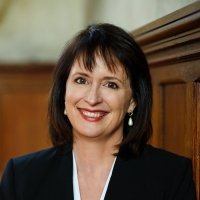
A blog of the Middle East Women's Initiative
Since 2014, the Yazidi community has endured some of the worst crimes seen in a generation, yet youth are still hopeful and working toward a more stable and prosperous future.
The Sinjar Academy, a startup hybrid education model in the Sinjar region of northern Iraq, expected 30 to 40 students to enroll in its online course offering on advocacy. Instead, almost 300 signed up, with over 150 students finishing the full course load to earn a certificate. A recent online German language course also surprised staff with 899 registrations. It is clear the youth of Iraq, especially from the Yazidi community, have a thirst for education and desire to improve their future.
Nine years after the Yazidi Genocide perpetrated by ISIS, the Yazidi community still primarily resides in internally displaced people (IDP) camps in the Kurdistan Region of Iraq. While some emigrated abroad, only a small portion have been able to return to their homeland of Sinjar. Murad Ismael, a Co-Founder of Yazda and now the President of the Sinjar Academy, observed that the students in the advocacy class he taught, “are not only concerned about local issues but also climate change, human rights, and religious freedom for everyone.” He explained that they were drawn to the topic because of their desire for change. “They are a forward-looking generation. They see the world and want the same standard of living for what they see – electricity, clean water, access to technology, high speed internet. Some don’t want to return to Sinjar because they don’t have the same level of the internet and problems with electricity.”
Youth desire change
Since 2014, the Yazidi community has endured some of the worst crimes seen in a generation, yet youth are still hopeful and working toward a more stable and prosperous future. The same could be said about other young people in Iraq and throughout the Middle East and North Africa (MENA) region, an important demographic that now makes up 55% of the region’s population.
In speaking with Arab, Kurdish, Syriac-Assyrian and Yazidi youth in Iraq and Syria, they seem unified in their frustration with leaders who prioritize policies that contribute to conflict, sectarian violence, unemployment, and worse. While studies show that youth in the region are becoming more religious, not less, they resent it being used as a political tool. Over two-thirds of young people in the region are in favor of two substantial changes to religious culture: modernizing religious institutions and ending interference in politics by religious leaders.
Frustration with leadership transcends religious institutions. Sixty-six percent of youth in the Levant and 63% in North Africa believe their government does not implement the right policies, and only one-third think their opinion matters to the leadership. By contrast, 87% of the youth in the Gulf Cooperative Council (GCC) countries believe their government has the right policies, with 78% believing that their voice matters to their government’s leadership.
Unemployment for people aged 15-25 in MENA has been consistently high for over 30 years, reaching 25% in 2022. As young people become more connected to their peers around the world, just like the Yazidi youth in Iraq, they are no longer content with the status quo in their own countries. In fact, studies show that 60% of young Arabs want to emigrate to the GCC or to the West.
As we desire a more peaceful and stable MENA region, how do we better support youth in their ambitions for positive change? How can we help them to flourish and stay, perhaps becoming the future leaders their countries need? The youth in Sinjar and northern Iraq are fortunate to have the Sinjar Academy. Local educational institutions are a great investment in the youth of the region. While there are plenty of troubling indicators in the MENA region and increasingly complicated geopolitical factors, the hope that youth have for a more peaceful and stable future is encouraging and a worthy investment.
Author

President, International Religious Freedom Secretariat

Middle East Program
The Wilson Center’s Middle East Program serves as a crucial resource for the policymaking community and beyond, providing analyses and research that helps inform US foreign policymaking, stimulates public debate, and expands knowledge about issues in the wider Middle East and North Africa (MENA) region. Read more


Middle East Women's Initiative
The Middle East Women's Initiative (MEWI) promotes the empowerment of women in the region through an open and inclusive dialogue with women leaders from the Middle East and continuous research. Read more

Explore More in Enheduanna
Browse Enheduanna
Women are the Catalysts for Change in Lebanon

How Education Can Empower Young Women in MENA


